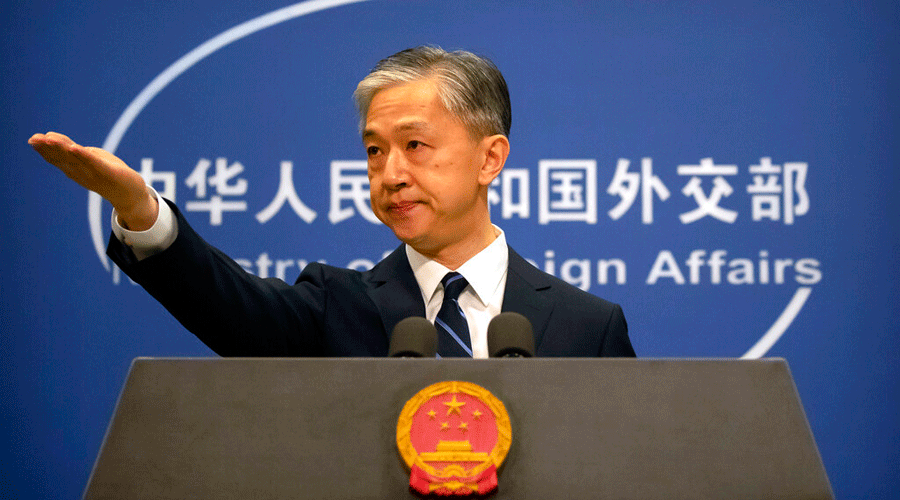Indian and Chinese troops have completed disengagement at most locations of face-off along the Line of Actual Control (LAC), China claimed on Tuesday, adding the remaining issues would be resolved at the next round of meeting of military commanders being planned.
The slightly more optimistic view of the situation on the LAC than the Indian perspective was articulated by Chinese foreign ministry spokesperson Wang Wenbin. He said this in response to a specific question on whether soldiers from the two sides had completed disengagement at the Galwan Valley, Hot Springs and the Kongka Pass, leaving only Pangong Tso to be resolved.
At the briefing, Wang was asked to confirm media reports that Chinese and Indian troops have completed disengagement at the three localities.
Wang referred to the series of diplomatic and military-level talks and said: “As border troops have disengaged in most localities, the situation on the ground is de-escalating and the temperature is coming down. Currently, the two sides are actively preparing for the fifth round of commander-level talks to resolve outstanding issues on the ground. We hope the Indian side will work towards the same goal with China, implement the two sides’ consensus and jointly uphold peace and tranquillity along the border.’’
From all accounts, Chinese troops have only marginally moved back at Hot Springs and Pangong Tso where they continue to command the ridgeline. Commanding the heights gives any army an advantage.
India has repeatedly asked China to implement the understanding reached at the meetings of the military commanders till date. Four such meetings have been held since early June but there has been no official word on how the actual disengagement has proceeded.
In a related development pertaining to the ban on Chinese apps, Beijing said: “The Indian government has the responsibility to protect the legitimate rights and interests of international investors in India, including Chinese businesses, in accordance with market principles. Practical cooperation between China and India is mutually beneficial. Deliberate interference in such cooperation will not serve the interests of the Indian side. China will also take necessary measures to safeguard the legitimate rights and interests of Chinese companies.’’
Chinese embassy spokesperson Ji Rong said this in response to a question on WeChat being asked to stop providing services to its Indian users after many existing users were automatically logged out of the platform last week.
WeChat is the Chinese multi-purpose messaging, social media and mobile payment app developed by Tencent that was banned by India along with 58 Chinese apps last month.
On the specific question of WeChat, the response was: “We have noted the relevant reports. On June 29, the Indian government banned 59 mobile apps with Chinese background, including WeChat, which severely damaged the legitimate rights and interests of Chinese companies. The Chinese side has lodged solemn representation to the Indian side and asked the Indian side to correct its wrongdoings.’’
Ji reiterated that the Chinese government consistently asks Chinese enterprises to abide by international rules and local laws and regulations when conducting external cooperation.










